Welcome to Idol Worship, a biweekly devotional to whoever the fuck I’m into. This is a no-holds-barred lovefest for my favorite celebrities, rebels and biker chicks; women qualify for this column simply by changing my life and/or moving me deeply. This week I’m reliving my own nostalgia with the gritty voice of Janis Joplin.
Header by Rory Midhani
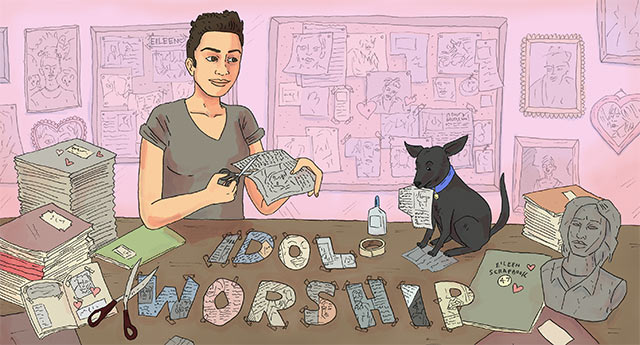
This weekend was Autostraddle’s International Meet Me At The Record Store Day, where I met about 25 lesbians and otherwise-inclined total queer ladies for pizza and vinyl. None of us own record players but it was nice to get out and I got myself a copy of Elton John’s Caribou.
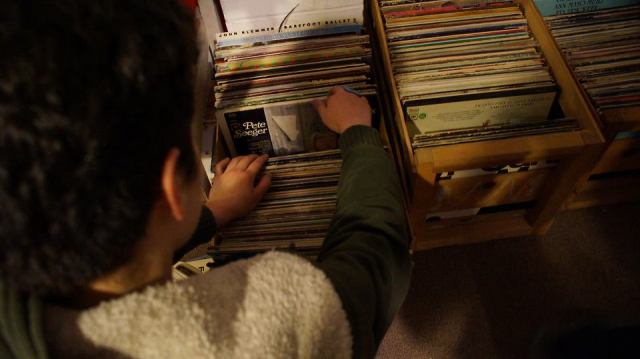
photo by sophia bonde / skinz
The first album I came to own on vinyl was Pearl. My friend gave it to me for my birthday in like, 2010, knowing my affinity for all things Janis Joplin that was well-established by then. Believe it or not, I was gifted her final masterpiece in all of its glory before I lost my voice and became a raspy woman myself. Once I got it, I bought a milk crate and unpacked my mom’s collection, adding The Police and Philip Glass to my stacks. Now, I’ve got Cher and Amy Winehouse and Nicki Minaj and the Dirty Projectors and Paul Simon and Michael Jackson all living amongst one another in their matching cardboard sleeves.
But Pearl was my first. And that meant a lot.
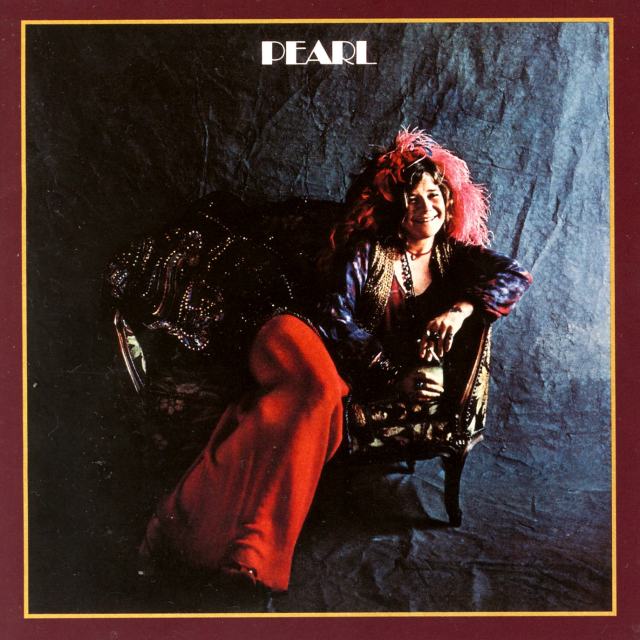
Janis Joplin was one of my favorite women when I was growing up. I’d discovered at a relatively young age that I was born in the wrong era and secretly belonged to the American hippie culture of the late ’60s and early ’70s, and Janis was one of my favorite female characters in the cast of stars that shaped our culture from that time. She came to me like the Beatles, John Lennon and Yoko Ono, Jimi Hendrix — all at once and all at my own prompting. Once I learned how to use the internet, I made it my mission to study as much as I could about the Vietnam war, the rallies and riots of an America alive with justice, and the stars who blew smoke and made us all naked and free. I wanted so badly to belong in those times growing up. I was a flower child wannabe. Hard.
It was easy for me to identify with Janis growing up. Despite the iconic achievements of other women from her era, she resonated deeply with me because she lived outside of the mainstream. She represented something even more raw and authentic than political activism — she offered emotional vibrance, a gritty history, and a complicated and battered heart. When I was young I read Love, Janis, a collection of her letters and a biography by her sister. I ate it up and never forgot the small forays into her personhood. It was the moment in which she became a real person to me. She was no longer a myth.
Janis Joplin was born on January 19, 1943. She grew up in Port Arthur, Texas — an oil town full of, presumably, some terrible people — with two siblings, a mother and a father, and faced social ostracization growing up as a big, acne-stricked teen. Obviously those experiences build character, so Janis read literature by the beats in high school, did drugs after she graduated, and attended two colleges while singing blues on the side in order to become just that: a character.
On July 27 (my soon-to-be birthday), 1962, Janis was profiled in The Daily Texan, the newspaper of UT, with the headline “She Dares to Be Different.” This was the same college where she was voted “Ugliest Man on Campus” before she ceased to be enrolled and hit the road for San Francsico.
“She goes barefooted when she feels like it, wears Levi’s to class because they’re more comfortable, and carries her Autoharp with her everywhere she goes so that in case she gets the urge to break into song it will be handy,” the piece began. “Her name is Janis Joplin.”
Janis went to California twice to get free. Her first incursion was an escape to San Francsico’s Haight-Ashbury in 1963, where she recorded some early tracks and developed a voracious appetite for the rockstar life: drugs and alcohol were her benchmarks. Well versed in speed and heroin, she could also often be caught drinking Southern Comfort. In 1965, she went home to clean up her act.
But in 1966, she went back.
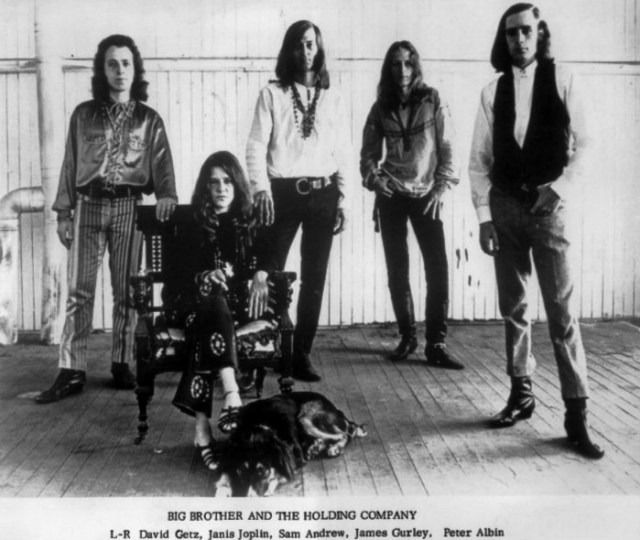
Recruited to record and tour with Big Brother & the Holding Company, she set her sights back on San Francisco and made history as a ballsy blues mistress with a voice that could easily rock any world. She worked with them, releasing tracks like “Down On Me,” “Piece of My Heart,” and “Summertime” and gaining exposure on television and radio as a new eccentric hippie personality, all granny glasses and bohemian tops. Her hair was always frizzed and her voice always slightly fizzled out from some sort of exhaustion, be it emotional, physical, or just plain theatrical.
In 1968, she departed from Big Brother for bigger things, taking with her just one member: Sam Andrew, the guitarist.
Her rancorous departure, Andrew believes, was mostly a product of Joplin’s restlessness. “I suppose this may sound sexist, but women will leave,” he said:
“They change things. They’ll rearrange the living room furniture every six months…
“Was she more talented than the band? I think that’s a fair statement. She was the most talented person I could think of to come out of the San Francisco scene. But that also means that she wasn’t going to find a band around the San Francisco Bay Area who would have been good enough to match up with her. She was maybe even the most talented person to come out of the entire American music scene, so maybe nobody could have matched her.”
Janis’s solo career began with her departure, as she became a woman with a bad behind her instead of a woman standing alongside one. She toured solo and with the Kozmic Blues band during her next period of music-making, going as far as Woodstock and releasing the famous song “Kozmic Blues.” By this time she was well-established as a cultural figure and a celebrity, writing home to her family in 1968: “I’m going to become rich & famous. Incredible! All sorts of magazines are asking to do articles & pictures featuring me. I’m going to do everyone.”
“Wow, I’m so lucky,” she mused. “I just fumbled around being a mixed-up kid (and young adult) and then I fell into this. And finally, it looks like something is going to work for me. Incredible.”
Despite a tumultuous past and a rocky rise to fame, complete with the horrors of addiction and the tragedy of loss and conflict in drugged-up sixties Hollywood, Janis had finally found the stardom she sought. No longer isolated or harassed for her otherness, she was being praised and revered for her part in an entire counterculture of rebelliousness, loudness, and the pushing of boundaries and changing of mores. She represented an entirely new kind of woman, one who was sexually adventurous (and, despite not being out, has been confirmed as having had affairs with both women and men), honest, belligerent, and altogether charmingly falling apart. She appeared, to the outside world and to the larger American public, to be rolling on with no roots, but she remained connected to her family and grounded throughout her accomplishments.
Janis also remained alone, surrounded by friends and the glamour of her famous lifestyle but also struggling to stay afoot due to drugs. Her loved ones watched as she refused their advice to seek help or slow down, and her work began to suffer. Throughout the later years of her career, she braved performances while stoned and drunk and also stopped using for short periods of time in search of self-improvement. Unfortunately, it wasn’t something she could shake: her relentless party girl attitude would continue to get her into trouble.
On October 4, 1970 she died, alone, wearing panties and a blouse and lying on the floor of a hotel room next to her bed. A heroin overdose had taken her life at the age of 27 mere weeks after Jimi Hendrix was similarly taken. She’d been staying at the Landmark Motor Hotel where a heroin dealer lived, and from whom she had that night received some dope that was stronger and more potent than she expected or was used to. She was recording Pearl, which went on to be her best-selling album and the most critically acclaimed. It was released a year after her death.
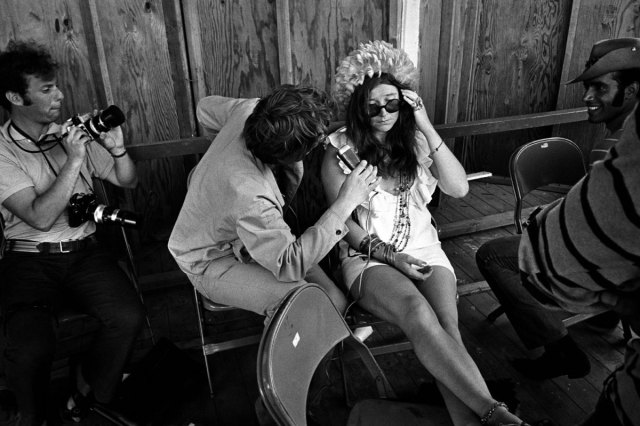
Janis Joplin is a good fit for cultural folklore: brazen, outspoken, and unabashedly wild, she attracted and thrived on attention and never shied away from the spotlight, be it for nefarious or promotional reasons. She was open, honest, and emotional, and her gift to us was her heart and soul. She made a huge dent in the music industry, broke walls for women who would come after her with open mouths ready for storytelling, and left a legacy that is magical, historical, and important.
She came to define San Francisco, California, and an era of America. And she was never forgotten in Texas, try as she might have to run away.
She fled the place early, never wanting to look back, rolling up the highway to Austin, in south-central Texas, where there was said to be a little more air. It was only a way-stop. One of those who came with her was a high-school classmate named Tary Owens. He’s a reformed junkie and you can find his name in most of the books about her. He still lives in the state capital and has a small folk record company. You call him up and ask whether they were as cruel to her in Port Arthur as has been described, and he says before the question is finished: “They were outrageously cruel. Terrible cruel.”
And then he says, “Frankly, I was in love with her for most of my life. It was unrequited. It never felt right to try to make moves. Well, we did have one petting episode on a trip back to Port Arthur one time.” He can’t remember where he was when he got the news of her death. He was too strung out.
Even now, Janis lives on — memorialized by women with struggling vocal cords and honored by those who worked with her, her voice carries on still through the airwaves. She’s never lost relevance, her popularity resurging whenever certain cultural moments come back into the forefront of our communal nostalgia. Janis Joplin is the sixties: legal drugs, free sex, loud mouths. Janis Joplin, though, is still our future: unafraid and unwavering, bold and empowered. She still sounds right.
And just for the record: she sounds better on vinyl.



Wow, thank you for such an inspiring history for such an inspiring lady! She was one of my early favs too– her voice made me tingle. (however, I cannot claim such badass vinyl as my first– I think my first vinyl was Sesame Street, which is cool in a different way)
Ohhhhh, Janis!
When I need high energy I put on Cheap Thrills and it fuels whatever I’m doing. There was a day I had it on and my then 9 y/o son said, “Mama, no offense, but that lady can’t sing.” No, baby, but she sure could sing the blues!
(And Jim Morrison died that same year, too.)
When I was 16 and got my first car, I sped around with the windows down SCREAMING Pearl at the top of my lungs over and over.
Karaoke Queen Tip: “Mercedes Benz” is an easy and always available go-to song. It will always be a success.
Cheers to Janis for shaping our lives.
RT
Mercedes Benz and Piece of My Heart are my default karaoke songs, particularly after consuming alarming amounts of Southern Comfort.
Cooooome on coooooommme on and TAKE IT!!
Love love love this article.
My dad is a huge Joplin fan and I grew up listening to her. She was one of my first female role models and she taught me you don’t have to look like everyone else, and you don’t have to be “conventionally beautiful” but if you’re talented as all fuck no one can touch you.
Every single time I see a bottle of Southern Comfort I think about how she always used to carry a mickey of it in her purse.
My first shots at bars were all Southern Comfort in her honour.
Awh, Janis.
My dad kept her records in the house my whole life, but it wasn’t until my voice started dropping in high school that I truly began to appreciate her music. Having her to look up to made being a deep, raspy voiced girl a little easier.
God I love her. If I had a Tardis, I’d be living on Haight-Ashbury in the 60’s.
I almost exclusively drink Southern Comfort because of Janis. And had lots of ill-advised cigarettes after drinking it in hopes that my choir girl voice could be more like hers.
Great article.
This was a wonderful article about a great woman. I grew up listening to her. No matter how much my taste in music changes and develops, I always come back to Janis Joplin. My first vinyl was Cheap Thrills.